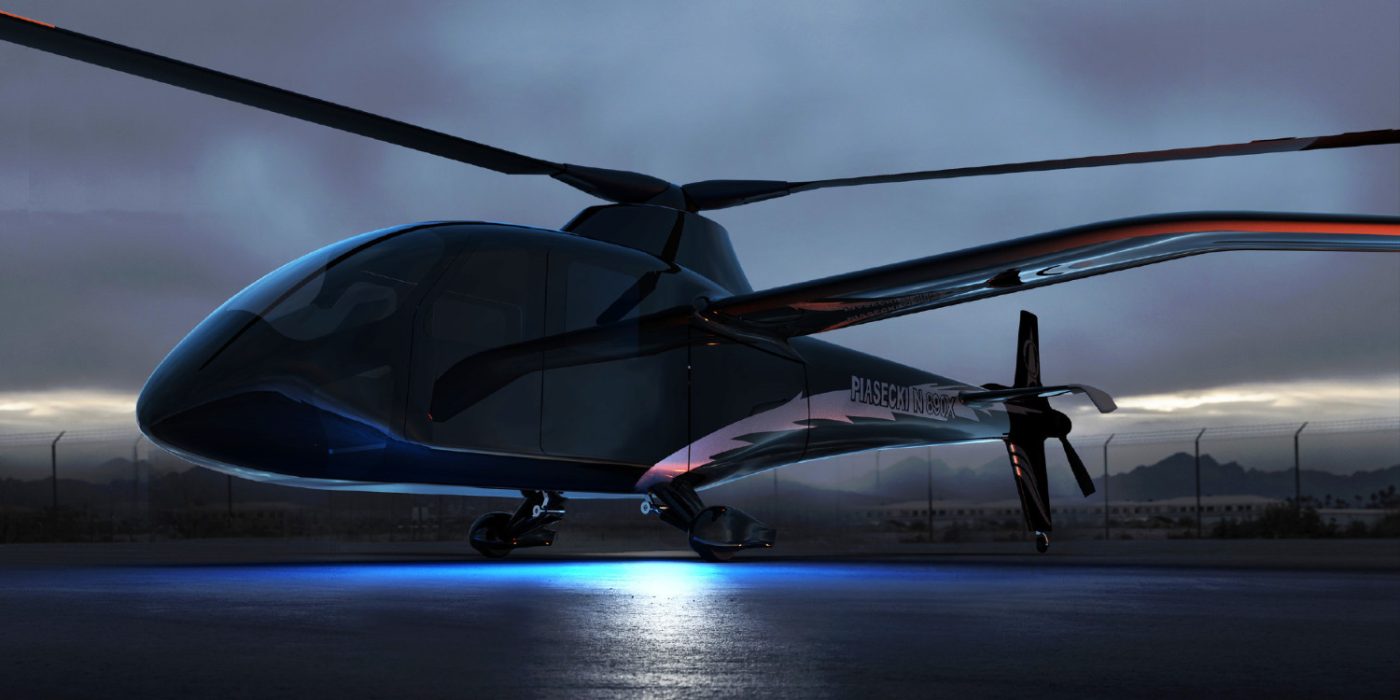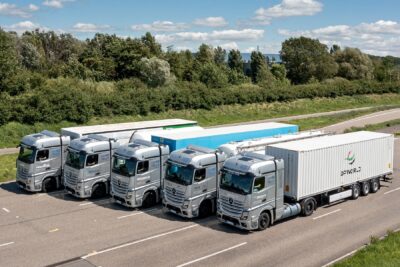HyPoint & Piasecki to develop helicopter fuel cell drives
HyPoint, which specializes in air-cooled fuel cells for electric aircraft, has signed a development agreement with Piasecki Aircraft Corporation (PiAC). The goal is to develop FC systems – including for what is expected to be the world’s first crewed H2 helicopter.
The partners initially plan to develop five 650-kW hydrogen fuel cell systems for use in Piasecki’s eVTOL PA-890 compound helicopter. This agreement is valued at $6.5 million, according to an accompanying release. Converted, that’s about 5.5 million euros. Beyond that, however, HyPoint and Piasecki are pursuing the goal of creating and marketing FC systems for the global eVTOL market. The talk is of a “certified multi-platform solution for eVTOL manufacturers.”
The hydrogen solution is intended to be a customizable, FAA-certified system that offers electric vertical takeoff aircraft manufacturers four times the energy density of existing lithium-ion batteries, twice the specific power of existing hydrogen fuel cell systems, and up to 50 per cent reduction in direct operating costs compared to turbine-powered rotorcraft, Hypoint says.
Piasecki is to receive the exclusive license for the technology developed under the partnership. HyPoint will retain ownership of the underlying hydrogen fuel cell technology, according to the deal. The partners say they will later customize the FC propulsion system depending on customer needs. Alternatively, the duo elaborates, manufacturers could work with HyPoint and Piasecki to develop a new system for their specific needs.
“The long-awaited emergence of eVTOLs and similar aircraft has been severely hampered by the technical limitations of existing power systems,” says Alex Ivanenko, founder and CEO of HyPoint. He said the new strategic partnership would “dramatically shorten delivery times by providing eVTOL manufacturers with next-generation hydrogen fuel cell systems that meet their specific requirements.”
In March, the California-based startup unveiled the first working prototype of its air-cooled fuel cell for electric flight vehicles, announced last year, and said it would begin selling fuel cells to aerospace and eVTOL customers in 2022.
For the first time this spring, the company, which was founded in 2019, also gave key figures for its HTPEM (“high-temperature proton-exchange membrane”) fuel cell, for which the company has devised the name “turbo-cooled fuel cell.” The system achieves up to 2,000 watts per kilogram of specific power and an energy density of up to 1,500 watt-hours per kilogram, according to HyPoHowever, whether the solution will also offer “four times the lifetime of conventional fuel cells, specifically 20,000 hours,” as announced last year, is not clear from the company’s latest announcement.
HyPoint’s approach is based on using compressed air for both cooling and oxygenation of the HTPEM, which the developer says will be three times lighter than comparable low-temperature liquid-cooled fuel cell (LTPEM) systems. The solution is also expected to use several technical innovations, such as lightweight bipolar plates and a conductive, corrosion-resistant coating. Key validation tests to prove technical feasibility have been completed, according to the startup.
Among other OEM partners, HyPoint cites ZeroAvia, which specializes in e-aircraft engines. In June 2020, there was also talk of a cooperation with the Israeli air cab developer Urban Aeronautics. So now HyPoint wants to take off with Piasecki as well. The company, based in Essington, Pennsylvania, is an aircraft and helicopter manufacturer founded in 1955. Piasecki says it is currently working with the FAA to establish certification criteria for its H2 helicopter. The company is also cooperating with the US Air Force on the AFWERX STTR/SBIR program.
“We are focused on developing and qualifying a 650-kW system for our PA-890 eVTOL composite helicopter, which would be the world’s first crewed hydrogen-powered helicopter,” said President and CEO John Piasecki. “Success will pave the way for collaboration with other eVTOL OEMs with different platform sizes to ensure broad application of this technology.”
Initial lab tests funded by Piasecki last winter demonstrated the technical feasibility of HyPoint’s hydrogen fuel cell system, he said. “Our goal is to develop full-scale systems within two years to support certification testing onboard aircraft in 2024 and to fulfil existing customer orders for up to 325 units beginning in 2025,” Piasecki said, outlining the stages ahead.






0 Comments